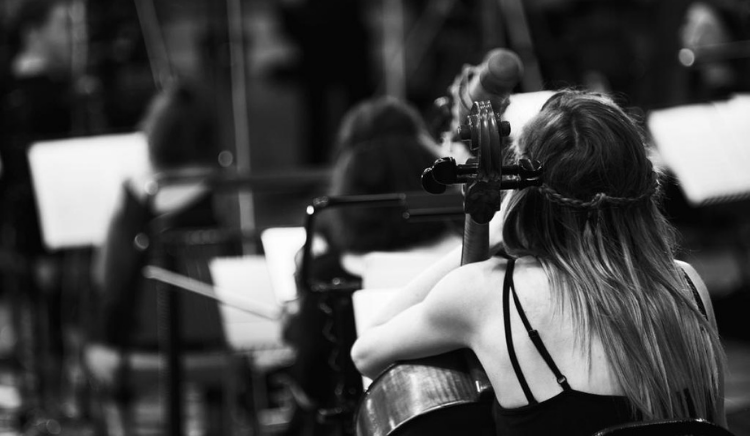Rachael Lander is a musician, a single mother, a recovering addict and a Trustee of Music Support. Here, in a follow up to her 2021 blog on Women in Isolation, she shares her experience of working in the music industry post-covid.
“A while ago, I wrote a post just like this one for Music Support about the life lessons I’d learnt over lockdown and how difficult I’d found being an unemployed musician, who is also a recovering alcoholic and single mother of two. Hmm. I must reword my Tinder Profile.
At the time, I had a new routine that involved eating overnight oats, meditating and being very connected with my children after 18 months of confined single mothering. I was sure that if and when I started performing again, my newfound appreciation for slowness and vastly improved self-care would mean that I’d glide serenely back into the workplace, fuelled only by porridge, gratitude and the transient beauty of live performance, which I’d feared I’d never do again. Dear reader, how wrong I was. Who’d have thought, going back to work would be HARDER than it was before? The oats and I are barely on nodding terms. I only want bloody oats if they’re soaked in a double espresso.
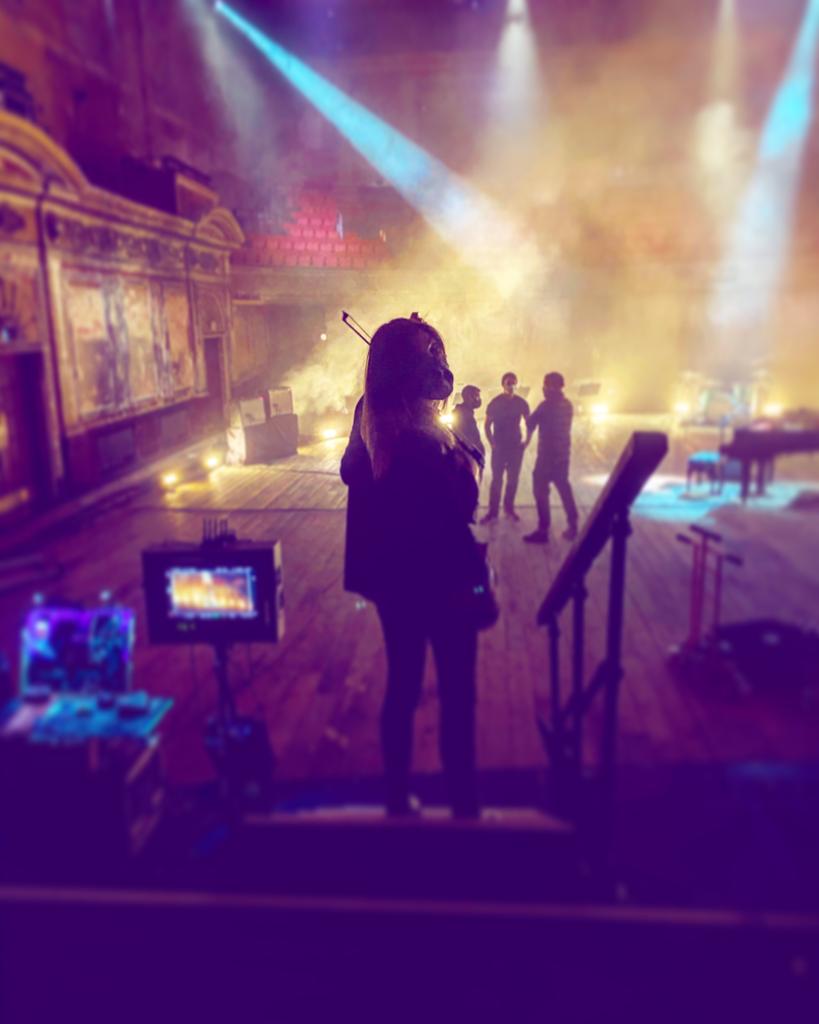
Despite the fact I’ve been asked to write this in my capacity as trustee of a mental health charity, I’m typing as an internal voice shouts “oh do stop wanging on about your difficulties. NO ONE CARES. People have it SO MUCH HARDER THAN YOU, middle class white lady.” While lament about the realities of working in the music industry post covid, I realise that as someone who is in regular employment at the moment, I’m extremely fortunate. (And naturally, expecting to be fired any minute.) A recent survey by Help Musicians showed that 83% of professional musicians aren’t earning what they were pre covid, and a third of musicians simply cannot find regular work. Please take it as read that I am grateful to be earning a living as a musician. My mental health was so poor at one point that playing the cello professionally was impossible which means I never, ever take it for granted. I didn’t need a pandemic to make me grateful to do what I do.
The bleakness and uncertainty of 2020 means that many of us feel ungracious to be complaining about any aspect of actual day to day employment but I think it’s important to acknowledge that what we are trying to do as we resurrect our industry is HARD. Try as we might to deliver the same high standards of performance as we did prior to the pandemic, we are dealing with the resulting emotional, practical and financial fallout. We are in the midst of a global mental health crisis. We’re trying to recover from collective trauma as it is still happening.
Feelings towards our government range from utter despondency to incandescent rage about how they responded to our plight. (I do hope Fatima’s new job in “Cyber” is working out for her.) Over the past 9 months I’ve been a guest speaker in my capacity as recovering frightened cello playing ex-drunk lady at three music colleges as part of a UK wide drive to support the mental health of our music students, who are battling depression, anxiety and the knowledge that the industry they’ve been in training for since they were children, is well and truly on its arse. With every ill-advised scroll I make on social media, I’m told by the wellness movement to be mindful, journal, meditate, manifest, plunge myself into cold water and for the love of Christ, BE GRATEFUL. As a 12 stepper I’m no stranger to any of those practices. However, nothing is more helpful to my poor dysregulated nervous system than to share my actual reality with other humans, as it truthfully is TODAY.
HARD THINGS ABOUT PERFORMING IN THE “NEW NORMAL”
1. FORGETTING HOW TO DO IT.
Depending on what you play, to whom you play and the venues in which your genre of music is performed, chances are that at some stage over the last while, there was an arctic abyss in your diary where rehearsals and performances used to be. This period most likely felt interminable. Days, weeks and months rolled by. We stayed in our homes, not packing black clothes into a gig bag, not hurtling down a motorway to “top and tail” a symphony in a 3-hour rehearsal in order to perform it to a live audience that same evening, and not sight-reading huge arpeggiated tranches of library music in a studio. Instead we baked sourdough, we home-schooled, we clapped impotently for the desperately stretched NHS, we worried ourselves sick about vulnerable friends and relatives, we battled extreme loneliness and financial insecurity, we despaired at the government, and we tried our best to survive what sometimes felt unsurvivable. We endured a truly weird and terrible time and for that we should all be proud. Unfortunately, in doing so, I for one, forgot how to do the following:
a. Read a schedule and correctly ingest the information therein. I don’t know about you, but I now have to read an email that says “Be at such and such a place at 10am” approximately 34 times, 10 of those times whilst on the journey to the destination, sweaty palmed and breathless, wondering whether I have in fact got the correct time. Or venue. Or month.
b. Pack the relevant items. I have heard several post covid stories of people turning up to sessions without an instrument. Sometimes they’ve left it on the South Eastern Railway, wending its way to Folkestone, other times they’ve arrived at a concert venue with an empty case, unwittingly leaving their instrument on a stand at home. If you managed to remember both your instrument and the correct performance attire, hats off to you.
c. Play said instrument. This needs a post on its own because the “can I still play?” question post Covid is so insidious and multi-layered. I can’t speak for everyone, clearly, but rest assured, if you’re worrying about your chops, you’re not alone. In my borderline inappropriate quest for human connection, I have no qualms about asking people in my various places of work how their mental state is and they’re usually happy to tell me. Every single person I’ve asked has used the word “anxiety” about how they feel at work at the moment. I know for a fact that lots of us are struggling, still. We’re no longer feeling on top of our game. Our limbs, digits and nervous systems aren’t necessarily doing what we want them to. The chutzpah required to turn up at work and flawlessly execute a tune, unencumbered by neurosis and trusting one’s own technical facility has in some cases disappeared altogether. Imposter syndrome and insecurity is commonplace. Some people haven’t made it back at all, and is it any wonder?
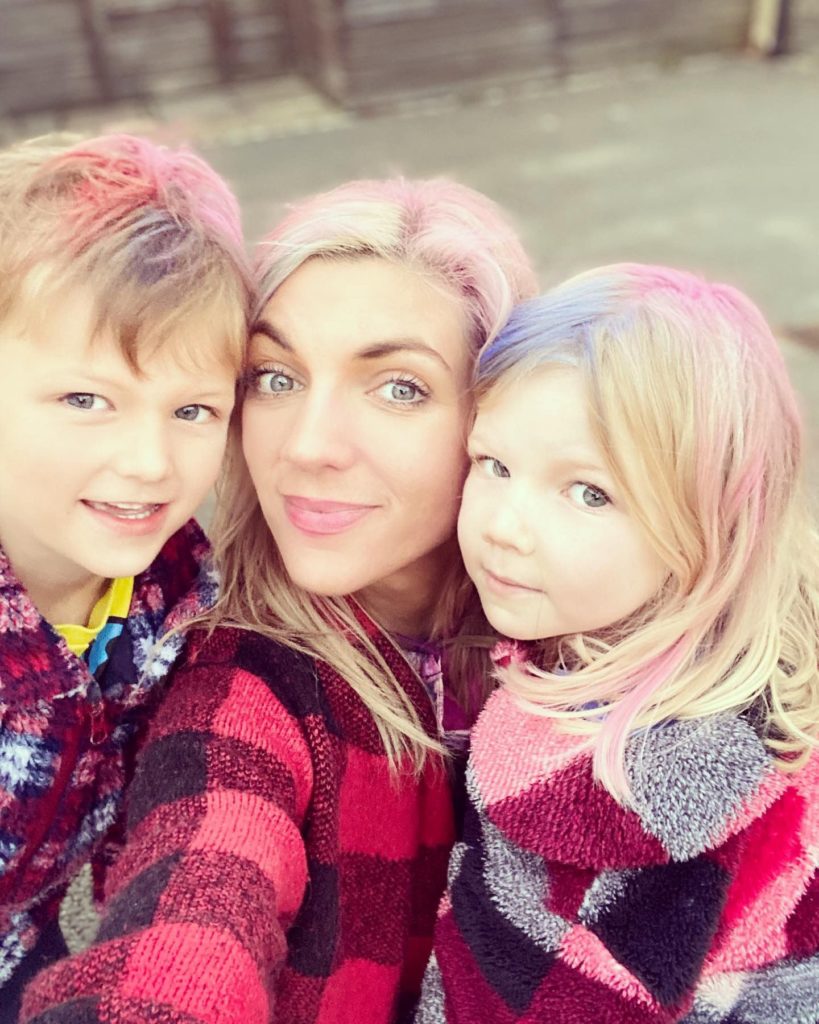
2. TESTING, TESTING, 123.
It seems ridiculous to complain about the endless parade of nostril swabbing that is the reality of our lives now, because we’re all doing it and we know why we’re doing it. BUT IT STILL GETS RIGHT ON MY TITS. There. I said it. On a day that I’m working in a theatre, I’ve to test twice before I even get the cello out of the case. Because we all know that in order to earn a living, we must adhere to protocol, we follow the rules. We turn up an hour early. We log in to gov.uk on the daily to report tests, order tests and awkwardly scan in QR codes. I’m supposed to test on the morning of every show day by 11am. I have a 4-year-old and a 6 year old. The morning wrangle with all its uniform finding, cereal spillages, shoe-based tantrums and hasty completion of forgotten homework, is FRAUGHT. If I haven’t done a lateral flow test the moment, I open my eyes, I will inevitably forget to do it. Sometimes my boss sends me a solitary eye roll emoji to remind me that yet again, I haven’t reported my result on time. I know all the reasons why this extra nosemin is necessary and useful. But it’s MORE STUFF and I’m already OVERWHELMED WITH THE STUFF. Working, being in recovery, doing the mothering, shopping for food, keeping our living space habitable, paying bills, school runs, laundry, looking after my physical and mental health….the everyday maintenance that goes into being an alive person never fails to appall me. This business of testing is more remembering. It’s another plate to spin. And inevitably smash to smithereens.
Then there’s the palaver of the testing AT WORK. When I get to work, wherever that may be, my deep irritation with having a sweating carbon fibre cello case on my back means that I find it very difficult to engage in polite chit chat with the person who has the unfortunate task of swabbing my nostril on arrival. I need a minute to take off my cello, put down my bags and decompress. I use this time to remember that I don’t actually hate everyone, I’m just hot and bothered from the Northern line. On a Wednesday, my ex-husband has to meet me from work rather than pick my children up as usual, because otherwise, I’d be late for my nasal smear. As a result, I’m flanked by my children on the tube, laden down with their overnight bags and asking me for snacks approximately every 3 seconds despite having just had their tea. Frazzled and sweating, I hand them over to their father at a station and hop back on the tube, feeling teary eyed with regret because I’ve inevitably snapped at them for skipping down the platform and bumping into an elderly fellow passenger, refusing to carry their school bag or asking me the same question fifteen times without listening to the answer. By the time I arrive at work, I’m jaded. The gusset faced claustrophobia I feel as I untangle my face mask from my work lanyard, headphones and earrings make it difficult to be cordial to somebody hellbent on shoving a cotton bud up my hooter. Sometimes the swab is slow and tickly as the kindly testing person counts “one, two, three, that’s lovely, any symptoms?” I manage not to say, “Just intense rage, thanks,” before sloping irritably off to wait for fifteen minutes for my result. Other testers are more utilitarian, favouring a jabby swab style that induces a sneeze, an antisocial throat gag or if you’re unlucky, a minor bleed. Either way. If I’m being tested, I’m fighting a deep seated compulsion to bat away the latex gloved hand that brandishes the dreaded swab in front of my face. I HATE it. When my youngest had Covid over Christmas I shared her food, wiped her nose without washing my hands and kissed her on her tiny coughing mouth so I could get it over with and then not test for 90 whole lovely days. But nothing doing. I remained stubbornly Covid free.
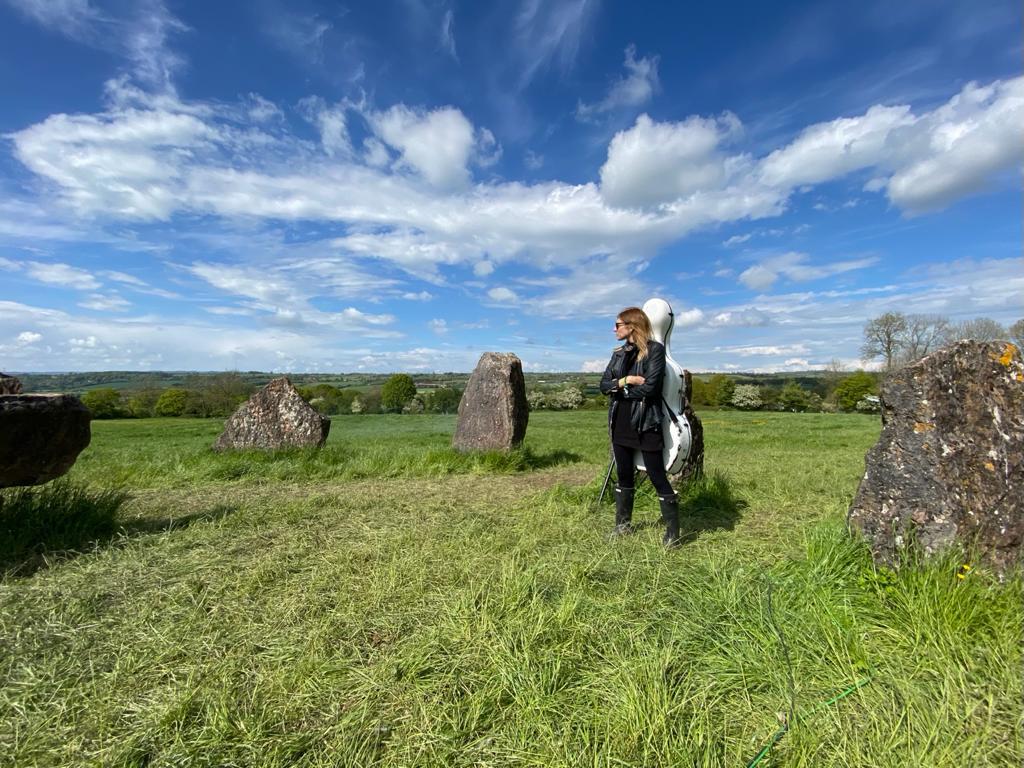
3. THE ANXIETY
As discussed, I’m not someone who needs a global pandemic to experience debilitating anxiety. It sure does help, though. We addicts feel a deep sense of discomfort within our bodies. That’s why getting wasted no matter what the consequences seems like such a good idea. We no longer have to feel that discomfort and the relief is lifesaving, until it isn’t. Being clean, sober and constantly sentient is a drag, because it means feeling everything all of the time. I’m acutely aware of what’s happening in my body and mostly, I want no part of it. I’m so good at somatising anxiety that I can hallucinate symptoms from the ether. I know lots of people like me who have found the plethora of Covid symptoms to be hypervigilant about a living nightmare. This is how the anxiety script in my head goes. (You’re welcome.)
SETTING(S): A silent studio, dark theatre pit or a brightly lit stage.
Anxiety [whispering]: Oh hey Rachael.
Me: Listen, I know what you’re about to do. Do shut up. I’m busy. [keeps playing the cello. Feels throat tighten]
Anxiety: Cool cool cool. Gotcha. Totally understand. It’s just. Your throat’s a bit scratchy. And weren’t you a bit cold and goosebumpy earlier?
Me: Nope. I was just cold. It’s cold in here. [skin starts prickling]
Anxiety: Oh ok. It’s just that you know, a sore throat and a fever are signs of Covid. Hey, I’ve just remembered your Mum’s got the kids. What if you’ve given it to her? Didn’t you hug her?
Me: Seriously, shut up. I did a lateral flow test earlier. Totes negs.
Anxiety: [laughs incredulously] Oh well if you did a lateral flow test…that’s probably fine. I hear they’re SUPER accurate. Hey, is your stomach ok now? Feels awfully tight. What was that grumble? Another symptom of omicron is the absolute raging squits you know.
Me: [trying to breathe normally. Looking at the clock for when the next break is] Yes. I’m just hungry.
Anxiety: Okeydoke. Well, if you do have Covid, you might have had it for a few days. You might have brought it to work. Wouldn’t it be awful if the show shut down because of you? By the way you’re breathing strangely. And why are your knees wobbling all of a sudden? If you have to isolate who’ll play the show? Haven’t half your deps got Covid? And you’ve still got that massive tax bill from before…you really ought to be working.
Me: [sweating] Shut up. This isn’t helpful. [Notices nauseating heaviness in chest.]
Anxiety: I mean, this discomfort in your body is probably Covid. Hey though, don’t shake. You need to sight-read this next page. That was a 5/4 bar. Missed it. Nice one. Your desk partner thinks you’re weird. Stop being weird. Are you OUT OF TUNE?!
Me: [throat closed to the point of gagging] You’re probably right. God, I feel really weird. I’ve probably got Covid. [fantasises about leaving place of work right this very second]
Anxiety: I think my work here is done. Enjoy shitting through the eye of a needle in the next break. If you can make it to the break. Toodle-bye! Just kidding. I’M NEVER LEAVING.
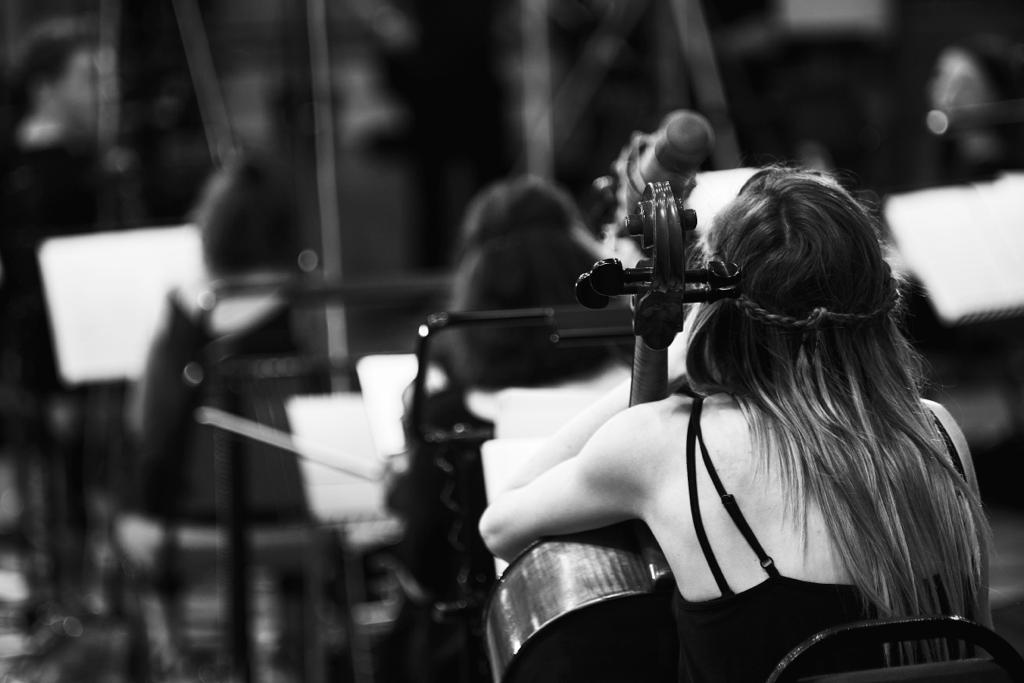
If I’m performing whilst wearing a mandatory face mask, the anxious voice is about 5 times louder and my physiology goes with whatever it says. It’s difficult to regulate one’s nervous system with integrated breathwork when your faceholes are swathed in fabric. Colleagues of mine arrive to work in a state of fight or flight because post covid, their commuter trains are understaffed and up the spout. Most of us are in financial difficulty following our enforced sabbatical. If we are lucky enough to be booked for a performance or a tour, it is subject to cancellation with a moment’s notice. That’s if we haven’t tested positive and had to ring the beleaguered fixer on the day of the gig to inform them. On any given day we can attempt to drop our children at school en route to work, to discover that our child’s class has been temporarily closed due to Covid and have to deputise a show or reschedule our teaching. It’s all ever so STRESSFUL. When we’re stressed, our bodies produce adrenaline and cortisol that affects the autonomic nervous system. If this happens over a long period, our minds and bodies start to suffer. I saw a fancy endocrinologist over lockdown who said the pandemic has tipped many women into early menopause. Cortisol has been stealing our reproductive hormones to sustain the stress response. Long term nervous system dysregulation affects our minds and bodies in a very real way. If you feel like you’ve been through a mangle, that is entirely appropriate.
If you are struggling, you are not alone. There are people to talk to and help is available. Music Support has a helpline. You can confidentially tell us how you’re doing, and we can direct you to the right support. All of us there have experience of the music and live events industries and the challenges of addiction and/or mental ill-health.
Thus far, classically trained musicians are by far the lowest percentage of our service users. Our comrades at Help Musicians report the same thing. I’m not sure if the perfectionism required to make us good at our jobs is what’s holding us back from admitting emotional vulnerability, or if it doesn’t occur to us to ask for help because we feel we ought to be able to address our mental health quietly, on our own without making a fuss. Maybe we’re afraid that if we speak openly about how tough it is we are somehow less employable at a time where our employment feels more tenuous than ever. No amount of trying to help myself by myself with my own will has ever helped me change anything about my mental health. I need all the talking and all the help in order to be of any use, personally or professionally.
If you suspect you need help but don’t know where to start, the following organisations are here.
Sometimes it takes just one gesture of asking for help to start a snowball effect of support and overall life improvement.
MUSIC SUPPORT: Our helpline runs 9 – 5 on weekdays on 0800 030 9789. If you’re reading this post, you’re on our website where you’ll find our addiction and mental health resources.
MUSIC MINDS MATTER is a helpline run by Help Musicians which is open 24/7. Call 0808 802 8008.
BAPAM The British Association of Performing Arts Medicine connects working musicians and other performing artists with free specialised support. Visit their website to book an appointment”.
